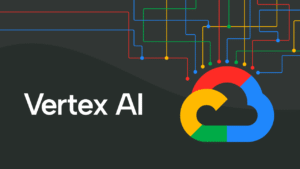The Evolving Standards of Enterprise IT Support in the UK

Enterprise IT support in the UK has undergone a dramatic transformation over the past decade. From reactive troubleshooting to proactive service management, the expectations placed on IT support teams are evolving rapidly. Today’s enterprises demand more integrated, agile, and strategic IT services that align closely with business objectives. This blog explores the changing landscape of IT support, the driving forces behind this evolution, and how UK organisations can stay ahead.
From Break-Fix to Strategic Enablement
Historically, IT support in the UK followed a break-fix model: something broke, the IT department fixed it. While this approach still exists in some legacy environments, it no longer meets the needs of modern businesses. As digital transformation accelerates across sectors, organisations are increasingly reliant on technology not just to function, but to compete and innovate.
Modern IT support is no longer just about fixing issues; it’s about enabling growth. This shift has led to a greater emphasis on proactive monitoring, automated incident management, and user experience optimisation. IT teams are expected to anticipate problems before they occur, resolve issues at speed, and support an increasingly remote and distributed workforce.
The Rise of IT Service Management (ITSM)
One of the most significant developments in enterprise IT support is the widespread adoption of IT Service Management (ITSM) frameworks. ITSM provides structured processes and best practices for delivering IT services effectively and consistently. Frameworks like ITIL (Information Technology Infrastructure Library) are now central to IT operations across many UK enterprises.
With the increasing complexity of enterprise IT environments, cloud, hybrid infrastructure, and mobile workforces, ITSM ensures that support is standardised, scalable, and aligned with business goals. More organisations are also turning to top ITSM solutions that offer ITSM as a service, allowing them to scale operations without heavy internal investments.
Automation and AI in Support Operations
Artificial intelligence and automation are reshaping the delivery of IT support. Chatbots, intelligent ticketing systems, and self-service portals are now common components of modern service desks. These tools free up human agents from routine tasks, allowing them to focus on more complex issues.
Predictive analytics is also being used to preempt outages and security breaches, minimising downtime and enhancing service availability. AI-driven solutions not only improve response times but also deliver insights into recurring issues, helping teams to address root causes rather than just symptoms.
Supporting a Hybrid Workforce
The shift to remote and hybrid work models has further complicated IT support requirements. UK enterprises now need to manage devices, networks, and applications that span both office and home environments. Ensuring secure access, reliable connectivity, and seamless collaboration has become a top priority for IT departments.
This has led to increased investment in cloud-based support tools, VPN infrastructure, and endpoint management solutions. More importantly, there’s a growing emphasis on providing the same quality of support regardless of where an employee is working from. This change isn’t just technical; it also requires cultural and process adjustments to keep the user experience consistent.
Meeting Compliance and Security Demands
With tightening data protection regulations like GDPR and evolving cybersecurity threats, UK enterprises are under pressure to ensure that their IT support operations are compliant and secure. Support teams must handle sensitive data responsibly, maintain audit trails, and ensure that only authorised personnel have access to key systems.
Compliance is no longer just the responsibility of the security team; it’s embedded into every level of IT support. Organisations are now incorporating compliance checks into their ITSM workflows and using tools that provide full visibility into access and change management.
Looking Ahead
The future of enterprise IT support in the UK will be defined by adaptability, intelligence, and user-centric design. As technologies evolve and business needs shift, support models must remain agile. Investing in modern ITSM platforms, embracing AI and automation, and aligning IT support with strategic goals will be key to long-term success.
Enterprises that view IT support not just as a necessary function but as a strategic enabler will be best positioned to thrive in the digital age.




